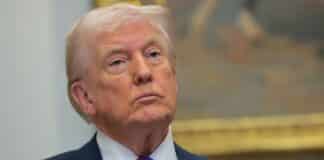President-elect Donald Trump’s administration is reportedly drafting plans to deport migrants to alternative countries if their home nations refuse to accept their return. The list of potential destinations includes Turks and Caicos, the Bahamas, Panama, and Grenada, according to NBC News.
Trump has prioritized mass deportations, particularly targeting illegal migrants with criminal histories. Incoming officials aim to expedite the process, seeking to deport individuals within a week of their arrest. In addition to proposing agreements with countries like Panama, Trump is reportedly pushing Mexico to accept non-Mexican migrants stopped at the U.S. border or deported from inside the country.
Trump spokeswoman Karoline Leavitt reaffirmed the administration’s commitment, stating, “President Trump was given a mandate by the American people to stop the invasion of illegal immigrants, secure the border, and deport dangerous criminals and terrorists that make our communities less safe. He will deliver.”
Some nations, including Venezuela, Cuba, and China, remain reluctant to accept deportees. Cuba’s Vice Minister of Foreign Affairs, Carlos Fernández de Cossío, criticized Trump’s proposal, calling it “unrealistic and unfair.”
During Trump’s first term, a similar strategy was employed in 2019-2020 under an agreement with Guatemala, where migrants from other nations were deported. That policy faced significant legal challenges, including lawsuits from the ACLU and other pro-immigrant groups, which remain unresolved in federal court.
Trump’s first term efforts to increase deportations faced obstacles due to court rulings, federal bureaucracy, and resource limitations. However, incoming administration officials are signaling a more aggressive approach this time.
Panama has already responded cautiously, with government spokeswoman Carmen Mora stating that they prefer to engage with the U.S. administration after Trump takes office on January 20. Critics and supporters alike are bracing for what could become one of the administration’s most controversial policies.





